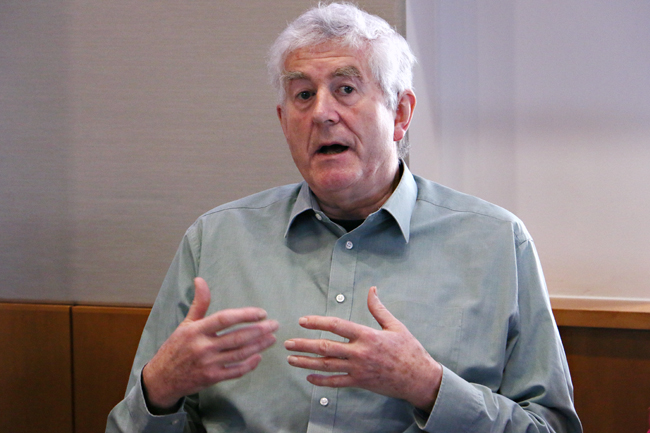Three politicians and experts discussed Friday the passing of a Welsh children’s rights law in 2011.
The event, held in the SAC, was part of Swansea University’s Texas Showcase — a week-long tour presenting the Welsh university’s research with stops at UT, Texas A&M University and the University of Houston.
Wales passed the 2011 law with the legal assistance of Swansea University and gained cross-party unanimous support. According to Rhodri Morgan, former first minister of Wales, the Rights of Children and Young Person Measure was the first domestic law protecting children’s rights. It required Welsh ministers to have due regard on the rights of children when exercising their functions.
“Normally in Wales, we do things after England, then follow,” Morgan said. “But with children’s rights, we did this first. We would become the first part in the U.K. and Europe.”
Although Morgan was in his “lame duck” period, he said he felt requiring government to take children’s rights into account was necessary and tangible.
“Following a very strong tradition and pretty strong cross-party support, why not do it?” Morgan said. “Why have people not already obliged the government to take regard for [what] would be followed by other countries? Why not us, and why not now?”
According to Jane Williams, associate law professor at Swansea University, there was tension regarding the law between the politicians and civil servants in the federation.
“There were elements of the coalition government that were resistant,” Williams said. “To put that in context, within the coalition in other political parties, there were brought reports. For many years, we were thinking about how to incorporate the U.N. and the barriers to that.”
Shortly after the law’s implementation in Wales, Williams established the Wales Observatory on Human Rights of Children and Young Persons. Williams said the observatory members included academics, government and non-governmental organizations from Wales and the U.K. The organization provided legal research and lobbied to bring the legislative measure to the U.N. Convention on the Rights of the Child in the U.K.
“It’s because the University was a neutral space,” Williams said. “This was a nice illustration of how we can be an informed society and for lobbying — which we were able to do.”
According to Helen Mary Jones, a former member of the National Assembly for Wales, Swansea University’s observatory was a major component to the legislation’s success.
“Jane [Williams] built an expert grip of human rights leaders and brought them together with backbone players of both parties,” Jones said. “The work Jane and the observatory did enabled us as back-benchers … lets us think what’s the implication and what’s right and wrong. Through this process, Jane and colleagues were able to advise us.”





















